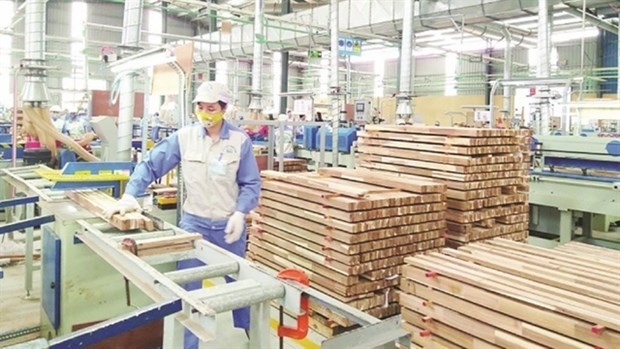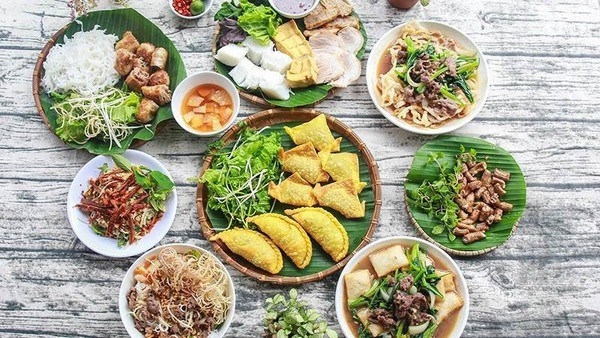
AsemconnectVietnam - In a speech delivered at the Addis Ababa University on 11 February, Deputy Director-General Alan Wolff stressed WTO commitment to supporting Africa’s continued economic integration, growth and development through the participation of African members in the organization. DDG Wolff paid his first visit to Ethiopia to participate in a Regional Dialogue on WTO Accession for Africa, bringing together all acceding governments from the African continent.
This is what he said:
The World Bank's webpage on Africa begins with the words:
Sub-Saharan Africa’s opportunities are vast. Home to the world’s largest free trade area and a 1.2 billion-person market, the continent is poised to create an entirely new development path harnessing the potential of its resources and people.
What I left out of the first sentence I just quoted are the words "and [Africa's] challenges [are] persistent". Among the problems cited for Sub-Saharan Africa are "political and regulatory uncertainty; and fragility". The details of this World Bank assessment continue:
The availability of good jobs has not kept pace with the number of entrants in the labor force; fragility is costing the subcontinent a half of a percentage point of growth per year; gender gaps persist and are keeping the continent from reaching its full growth and innovation potential, and 416 million Africans still live in extreme poverty.
The multilateral trading system, now administered by the World Trade Organization, is not a stranger to these kinds of challenges. The system was created in 1947 in the wake of two cataclysmic world wars, accounting for almost 100 million killed. It was a time when there was no assurance that the global economy would recover after the Second World War. The interwar period, during the deepest part of the Great Depression, witnessed unemployment in Europe and North America reaching 25 million. When the creation of the International Trade Organization (ITO) was being contemplated, there was no assurance that without war-driven demand and with demobilization of armed forces, that the world would not sink back into pervasive unemployment.
The avoidance of renewed conflict and a failure at economic recovery was very much on the minds of those planning for the post-war period. The opening words of the Havana Charter for the International Trade Organization (ITO), signed on 24th of March 1948, which was to be a sister organization with the World Bank and the International Monetary Fund, were:
Recognizing the determination of the United Nations to create conditions of stability and well-being which are necessary for peaceful and friendly relations among nations, the parties to this Charter undertake in the fields of trade and employment to cooperate with one another. For the attainment of higher standards of living, full employment and conditions of economic and social progress and development.
The signatory countries wanted to use economic ties among nations, through trade, to underwrite the peace, particularly in Europe, the countries of which had precipitated the two world wars. The lessons learned during that period nearly three-quarters of a century ago when the multilateral trading system was founded have largely receded in the minds of today's policymakers.
The two most recent to join are Liberia and Afghanistan, no strangers to domestic conflicts. Today, at the World Trade Organization (the WTO), the linkage of trade to world peace is most prominently seen in conflict-affected states joining the organization. In the list of countries at present actively seeking to accede to the WTO are Somalia, Sudan, South Sudan, Syria, East Timor and very prominently, Ethiopia. All have the goal of domestic reform and integration into the world economy, to create greater stability and have a better chance at achieving an enduring peace. Their motivations are not very different from those of the founders of the multilateral trading system in 1947.
The peoples of the African continent are not strangers to conflict. The number of conflicts in Africa during the last two decades is staggeringly large, amounting to nearly fifty separate instances of armed conflict, a significant number of them continuing to this day. This circumstance puts a premium on policies and measures that create stability and improve the prospects for peace. This is the context in which a renewed interest in the WTO and the multilateral trading system is occurring.
Ethiopia applied to the WTO for observer status in 1997, when the WTO was only two years old. It began its accession process in May 2008 with an Accession Working Party meeting in Geneva. This process was put on hold by the Government of Ethiopia in 2012. Just two weeks ago, Ethiopia formally resumed its WTO accession process with the holding an Accession Working Party as a complement to Ethiopia's extensive program of domestic economic reforms. Ethiopia's Chief Trade Negotiator, Minister Mamo Mihretu, provided details for the WTO Members of what he termed Ethiopia's "wide-ranging home-grown economic reform agenda", regarding finance, investment, taxation and a series of other domestic measures. He went on to say the following:
Ethiopia’s interest to join this Organization goes beyond the economic objectives outlined. Ethiopia has learnt from its own experience, the hard way, that trade is a critical medium for the building of peaceful inter-state relations at all levels, bilateral, regional as well as global. Ethiopia is here today because it is convinced that. There is no better way to advance free and fair trade than through a multilateral trading system based on the rule of law, transparency, good governance, and predictability. Just as the WTO aims to advance peace and stability through trade, the Government of Ethiopia is committed to use trade and regional integration as the central pillar for its mission to bring peace and stability to the Horn of Africa region.
There is another parallel between the nations of Africa today and the founding members of the multilateral trading system seventy-three years ago. Both have seen regional economic integration as a major tool for creating stability and underwriting economic progress. The GATT made provision for the creation of deeper integration on a regional basis, and this is a major aspect of the WTO today. The EU’s founding fathers—including Jean Monnet, Robert Schuman, Paul-Henri Spaak, Alcide de Gaspari and Konrad Adenauer— were committed to building closer ties to support the new peace, first through integrated production and then through a unified European market.
On March 25, 1957, France, West Germany, Italy, the Netherlands, Belgium, and Luxembourg signed the Rome Treaty creating the European Economic Community (EEC) -- the European Common Market. Sharing the production of coal and steel, and the peaceful use of atomic energy, the free movement of goods within Europe was a cornerstone of post-war efforts to build a lasting peace. In 2012, the Norwegian Nobel Committee awarded the Nobel Peace Prize to the European Union (EU). In justifying its decision, the committee recognized the "stabilizing part played by the EU [which] has helped to transform most of Europe from a continent of war to a continent of peace".In the same spirit Ethiopia is now part of a regional free trade agreement – the Agreement establishing the African Continental Free Trade Area, which entered into force on 30 May 2019. On March 22, 2018, UN Secretary General, António Guterres, made the following statement on the signing of the African Continental Free Trade Area:
I congratulate African leaders for taking the leap into history by signing the African Continental Free Trade Area (AfCFTA) to create one of the world’s largest trading blocs with over 50 countries. This is an important step towards achieving the Sustainable Development Goals and delivering on the African agenda of peace and prosperity.
Ethiopia signed and ratified the African Continental Free Trade Area during 2019.
The WTO is committed to supporting Africa’s continued economic integration, growth and development, through the participation of African Members in the WTO and through the African Continental Free Trade Agreement (AfCFTA). In June of last year, the WTO Director General, Roberto Azevêdo, congratulated the group of African Members of the WTO on the recent entry into force of the AfCFTA, which he described as “hugely welcome”.
I am here, on my first visit to Addis, to be with the WTO Accessions Division which has organized a Regional Dialogue on WTO Accessions for Africa, bringing together all acceding governments from the African Continent. This year's theme for the Regional Dialogue is "Deepening Economic Integration in Africa through WTO membership and AfCFTA Implementation". The meetings here this week are part of the WTO's broader efforts to build a stronger bridge between the WTO and Africa.
The rate of change in Ethiopia, and the prospects for further change, are outstandingly positive, moving the country toward greater openness and connecting it more closely with other African nations and the world. The new government led by Prime Minister Abiy Ahmed has embarked on an ambitious economic reform plan, with the aim of taking full advantage of the country's development potential and transforming it into an icon of prosperity for the African continent by 2030. Trade and regional economic integration are given special emphasis in this reform plan.
Among 22 countries acceding to the WTO, including nine from Africa, Ethiopia is the most populous and one of the key emerging markets that remains outside the multilateral trading system. What can Ethiopia expect from the process of WTO accession? Looking at the results of WTO accessions completed to date – 36 of them, including China, Saudi Arabia, and the Russian Federation – we see that they have benefitted enormously from the process of economic reforms required to join the WTO. China changed hundreds of laws and thousands of regulations to join, and its economy has burgeoned beyond anyone's expectations. During its 19-year accession process, the Russian Federation also used its WTO accession process both as an instrument for trade liberalization and economic transformation. Here is what Russia's Chief Negotiator said at the last, the 31st WP meeting on Russia's accession in November 2011:
Over the past 18 years, the Russian Federation had become the sixth largest economy in the world; a major player in global markets; and, had formed a Customs Union with Kazakhstan and Belarus. One thing had not changed: the confidence that the WTO was the only basis for the future development of the Multilateral Trading System and its Members.
WTO accessions have expanded the coverage of world trade taking place under WTO rules to 98%. Accession roadmaps have served as an external anchor for economic reform and transformation that have resulted in faster economic growth and enhanced trade performance of new Members. Ethiopia aspires to become one of the leading economies in Africa by 2030, through pursuing WTO accession aggressively. The WTO accession process will support regulatory and administrative changes while improving the quality of economic management institutions.
Through its accession to the WTO and its domestic reform agenda, the government of Ethiopia hopes to raise the standard of living of its people and contribute to peace. And it is intent on finding ways of achieving its objectives in a more sustainable way.
Support for Ethiopia's accession and the fulfilment of the promise of the AfCFTA must be, and I am sure will be, high priorities for the WTO. The result of the efforts of all those involved must be, and I believe will be, to improve the opportunities that you will have going forward as you choose your professions and enter the workforce.
Thank you.
Source: Vitic/ wto.org






